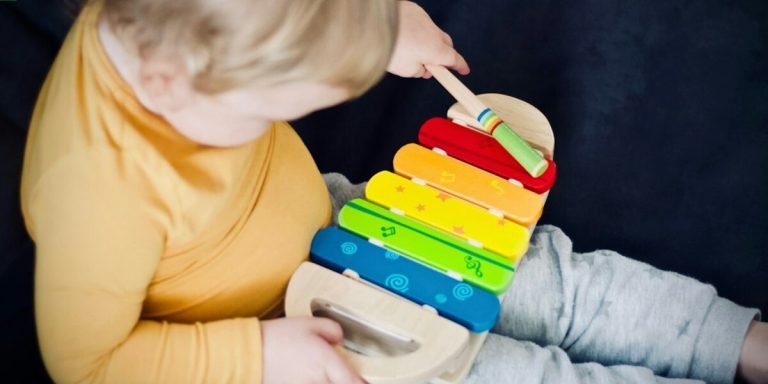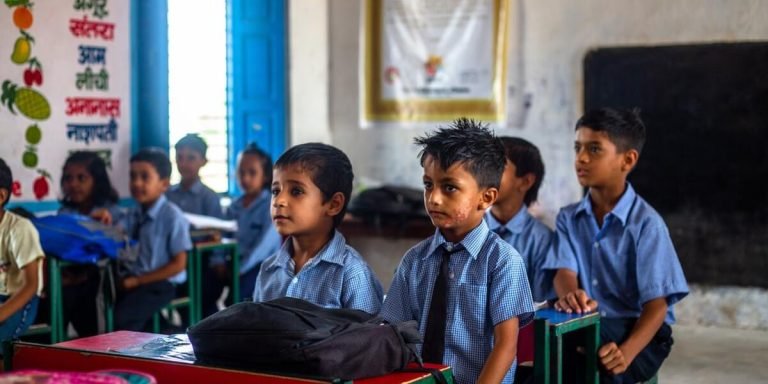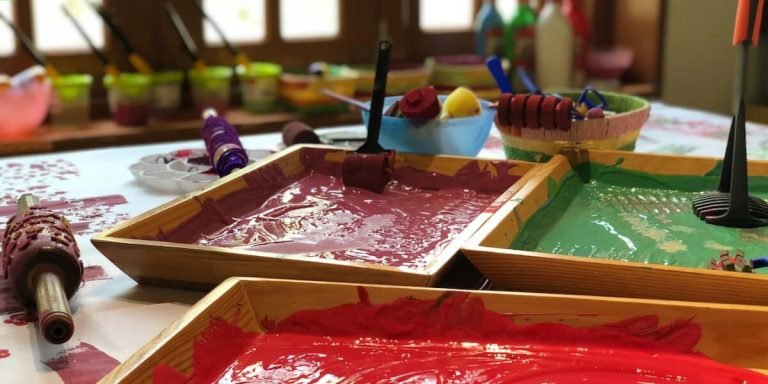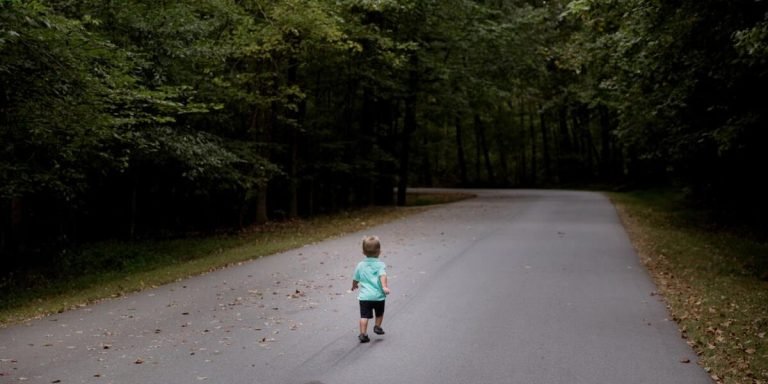Kindergarten Checklist: Essential Factors for a Child’s Successful School Start
Kindergarten is a significant milestone in early childhood education, marking your child’s first step into structured learning. Preparing for this transition can often prove challenging for parents and educators alike. This is where our “kindergarten checklist” comes into play, serving as an indispensable tool that identifies essential factors crucial to ensuring a successful school start.
The kindergarten experience lays the groundwork for your child’s educational journey ahead. The right preparation not only nurtures their curiosity but also helps develop key social skills and foundational knowledge necessary to navigate through future grades effectively. A comprehensive understanding of what makes up a good ‘kindergarten readiness’ can indeed make all the difference.
Did you know?
Did you know that children who attend a high-quality kindergarten program are more likely to demonstrate cognitive, language and social advantages by third grade? This is supported by an extensive study conducted by the National Institute for Early Education Research.
Understanding the Kindergarten Readiness Checklist
The transition from preschool to kindergarten is a considerable step in a child’s life. One tool that helps parents and educators prepare children for this new chapter is the Kindergarten Readiness Checklist. This checklist serves as an insightful guide, outlining various skills kids often need when they enter kindergarten—the ability to recognize numbers or letters, simple hand-eye coordination tasks like holding pencils correctly, interacting comfortably with peers amongst others.
However, it’s 2023 and we cannot overlook technology’s role in early childhood education while discussing readiness for schooling years today. The Kindergarten Readiness Checklist must encompass elements of tech familiarity too given our increasingly digital world. For instance – can a child navigate through basic age-appropriate apps?
Do they comprehend how touchscreens function? These are no longer auxiliary queries but have grown into vital components of their educational journey.
This expanded vision entails integrating technology within instruction models seamlessly —be it learning alphabet via interactive multimedia applications or comprehending the basics of coding using elementary puzzles and games! Technology integration isn’t about replacing traditional teaching methods; instead, its focus lies on augmenting them by creating engaging digital environments fostering creativity & critical thinking—imperative attributes equipping youngsters better not just academically but also for future career success.
Key Developmental Milestones for Kindergarten Preparedness
Understanding the readiness of a child for kindergarten can be quite challenging. However, with a handy “kindergarten checklist”, parents and teachers alike can gain insight into whether or not they’re prepared to enter this exciting new phase.
Here are some key developmental milestones your child should ideally reach before heading off to kindergarten in 2023:
1) Social Skills: The first sign that your little one is ready for school life lie within their social abilities. Can they share toys? Are they able to play as part of a group?
If these boxes are ticked on your “kindergarten checklist”, it’s an excellent start!
2) Emotional Development: This involves gauging if children are capable of managing emotions appropriately while also displaying empathy towards others around them.
3) Cognitive Skills: These include basic problem-solving skills and understanding simple concepts such as numbers or patterns which form the cornerstone of early childhood education.
4) Literacy and Language Aptitude: As we move forward into our tech-driven future, literacy goes beyond just being able to recognize alphabets. It now includes digital literacy too – like knowing how navigate age-appropriate apps or software.
5) Physical Abilities: Here we’re looking at motor skills–fine (like holding pencils correctly), gross (like jumping on one foot).
Remember, these benchmarks vary from kid-to-kid seeing as each progresses at their own pace.
Essential Skills Your Child Should Have Before Starting Kindergarten
Navigating the readiness for kindergarten can be a daunting experience, especially when it comes to ensuring your child has mastered all the essential skills in their pre-kindergarten years. A comprehensive “kindergarten checklist” should encompass several key areas of development that are paramount and aligned with current early childhood education philosophies.
Firstly, let’s focus on social-emotional development. Learning how to manage emotions effectively and engage positively with peers is an important step forward into formal schooling life. Skills such as sharing toys or materials, listening during storytime and following simple instructions have been traditionally considered under this category.
Another crucial aspect evaluated on the kindergarten checklist is language comprehension ability along with expressive communication skills. Can your little one understand spoken directions? Are they able to communicate thoughts through words clearly?
These abilities allow children not only enhance learning but also help build relationships easily within classroom settings.
The realm of cognitive development plays equally critical roles here too – recognition of basic shapes, numbers up till 10 at least; having some familiarity about letters would prove highly advantageous for any kindergartner walking into school first day!
Preparing Young Learners: What to Include on Your Kindergarten Checklist
Incorporating technology into curriculums has become increasingly imperative in this digital era, and kindergarten is no exception. When preparing your young learners for their educational journey, a comprehensive checklist that encompasses aspects of technology integration becomes essential. This forms the foundation upon which we build our learning ecosystem.
The first item on your Kindergarten Checklist should be to cultivate soft skills like familiarity with technological devices such as tablets or computer systems – tools they will inevitably encounter throughout their academic lives. A child who can navigate these platforms well demonstrates readiness not just for kindergarten but also future tech-based education elements.
Secondly, early childhood educators ought to introduce age-appropriate edutainment software programs aimed at capturing student’s interest while fostering cognitive development; think interactive puzzles or e-books replete with intriguing audio-visual stimuli that aid comprehension levels enormously. Ensuring an environment where children are thrilled about engaging activities keeps them motivated towards consistent progress.
As you map out what seems suitable for inclusion in this contemporary context functionality-oriented guidebook remember the value of balance! While embracing useful technologies definitely holds its place within the scope of advancing learning experiences marking off time dedicated to traditional classroom practices (especially physical exercises) simultaneously remains integral too.
Lastly, always keep parental involvement front and centre so they understand how best to augment optimal skill utilization when it comes down assisting kids outside school bounds especially since unmonitored screen-time might sometimes lead astray from guided purposeful usage hence necessitating checks balances ensure overall holistic growth each budding learner!
Cognitive and Academic Abilities for Early Education Success
Helping your child succeed academically never starts too early. As part of the kindergarten checklist, it’s essential to understand and support the development of cognitive and academic abilities in early education.
Cognitive skills are at the heart of all our children do, from learning numbers to understanding instructions. From an educational point of view, these skills involve memory, attention span and thinking ability – critical foundations for future learning scenarios.
But what should you be focusing on? Here are some points that could help:
1. Memory Enhancing Activities: Improving a child’s memory is crucial as they head into structured school settings like Kindergarten where remembering things forms a fundamental basis for their education.
2. Focus & Attention Development: Inspiring curiosity may form this base naturally but creating activities or games that require focus can also aid in enhancing their concentration levels.
3. Thinking Skills Challenges: Develop problem solving capacities by giving them puzzles or strategic games that challenge their minds providing tangible rewards when successful might stimulate active participation.
Reading aloud together with expressive tones helps inspire love towards words which ultimately aids comprehension while interactive story-telling sessions act more multi-dimensional tools addressing not just language proficiency but aspects social-emotional well-being simultaneously!
Social-Emotional Competencies Crucial for the Transition to School
Entering Kindergarten is a significant milestone for your young one. It’s important to ensure that they are prepared, not just acadically and physically but also emotionally and socially. The “kindergarten checklist” should include developing social-emotional competencies essential for the transition to school.
Social-emotional skills form an integral part of early childhood education, often overlooked in pursuit of academic milestones. They help children understand their feelings, learn empathy towards others’ emotions, develop self-control along with fostering positive relationships with peers – all crucial aspects needed during this transitional phase.
To start off with the kindergarten checklist on emotional readiness:
1) Emotional Self-Awareness: Encourage kids to express their feelings openly by naming them – whether it’s happiness or frustration.
2) Empathy: Teach kindness through activities like sharing toys or comforting friends who seem sad. Emphasize understanding from another person’s perspective.
3) Sharing & Cooperation: Playgroup sessions can instill a lesson in taking turns and working together as a team which will be advantageous when interacting within larger classroom settings.
Implementing technology integration at this stage aids dramatically in nurturing these core skillsets while making learning more interactive and engaging. From educational apps focusing on mood recognition for building emotional awareness to virtual simulations promoting effective group collaborations – digital platforms today offer immense opportunities tailored specifically around holistic development needs of kindergarteners-to-be .
Enhancing Home Environment: Supporting Early Learning Ahead of Kindergarten
A child’s early learning stages are critical, and as parents or caregivers, enhancing the home environment to support their development before they step into kindergarten is key. Incorporating technology-integrated education at an early age can serve as a valuable tool in enriching your kid’s understanding of various concepts. In this digital era, our 2023 focus should be on embracing modern tools that make learning more interactive and fun.
The concept of “techie toddlers” may seem outlandish to some. Still, with proper guidance and parental control mechanisms in place; tablets, educational apps like ‘ABCmouse’, and e-books can turn screen-time into creative educational opportunities for preschoolers. Bear in mind that balance is vital; hence using these platforms judiciously alongside traditional teaching methods could set up children for success when it comes time for formal Kindergarten lessons.
Select appropriate technology tools that match the child’s developmental stage to influence learning. When you design a study space at home, make sure to include:
- Standard resources like books
- Smart devices with applications relevant to their curriculum
This blended approach keeps young learners engaged and develops essential skills at home, preparing them for kindergarten. The tap-tap generation has enhanced how they impart foundational knowledge without overlooking its necessity.
Cultivating a Literacy-Rich Space to Jumpstart Reading Skills
Cultivating a literacy-rich space at home can significantly boost your child’s reading skills. This investment doesn’t necessarily require an extravagant budget but primarily involves thoughtful planning and creativity.
Begin by taking stock of your current setup. Review each room in the house from a learning perspective, identifying possible spaces for enrichment activities that promote early childhood education while making sure it is conducive for young learners’ attention span.
Start small with introducing books into their daily life; this could be as simple as putting up bookshelves within easy reach in essential areas around the house such as bedrooms or living rooms. Encourage exploration by updating these shelves frequently with different genres including storybooks, informative guides about nature and animals, comic strips – all age-appropriate material catering to evolving curiosity levels.
Ensure interactive learning tools like puzzles and flashcards are readily accessible alongside books to facilitate hands-on involvement which reinforces visual memory- an integral part of growing cognitive abilities.
Further fortify this literary foundation through regular reading sessions together; however short they maybe initially would build over time fostering bonding moments simultaneously enhancing language proficiency – another ‘must-have’ on any kindergarten checklist!
Incorporating Play-Based Activities that Promote Numeracy and Problem-Solving
In the contemporary landscape of education, play-based activities hold a pivotal role in early childhood development preceding kindergarten. As parents and guardians strive to ensure their children’s readiness for school, incorporating these methods into daily routines can significantly enhance cognitive skills like numeracy and problem-solving.
Welcome technology as part of your child’s learning journey to create an enriching environment at home. Use these tips to utilize tech effectively:
1. Digital Board Games: Introduce your child to digital board games that incorporate counting or simple calculations such as addition or subtraction – key components of most kindergarten checklists.
2. Math Apps: Numerous educational apps focus explicitly on developing numeracy skills through engaging interactive experiences, making them worthwhile additions to pre-kindergarten sessions at home.
3. Interactive E-books: Technology has also given life blood traditional storybooks with integrated animations which promote interaction creating subtle opportunities for critical thinking and problem solving drills focused around numbers.
4.Experimentation Spaces: Use Augmented Reality (AR) spaces where kids can experiment objects’ arrangement thereby understanding spatial relations- rudimentary knowledge crucial for boosting mathematical reasoning capabilities over time.
5.Problem-Solving Video Games : Certain video games have the capacity based strategy building tactics , letting young minds explore new avenues while enhancing problem-solving abilities naturally amid fun-filled e-playtimes .
6.Coding Activities : While coding may seem complex when viewed from outside , it offers rich engagement with problems – breaking down numbers into logical patterns .
Conclusion
In closing, having a comprehensive kindergarten checklist by your side can be the game changer many parents and educators wish they had. This roadmap not only paves the way for a smooth transition into formal education for children but also reinforces their base for future learning endeavors. From developing age-appropriate social skills to nurturing curiosity and creativity, each aspect of this checklist plays an integral role in crafting successful academic journeys.
Don’t stop at preparing with just our kindergarten checklist! Our website is bursting with more insightful articles that dive deeper into childhood education essentials. We invite you to continue exploring these resources aimed at providing support both on the home-front as well as within classroom walls – because educating youngsters should always be strategic yet sublime.
Remember, we’re here every step of the way – guiding you through one milestone to another.







